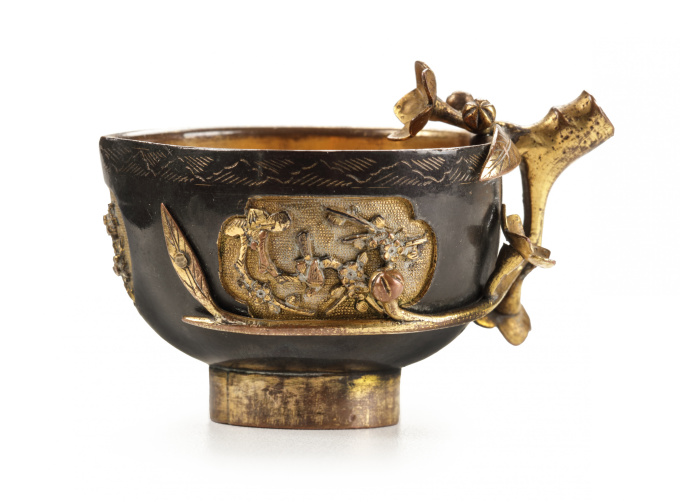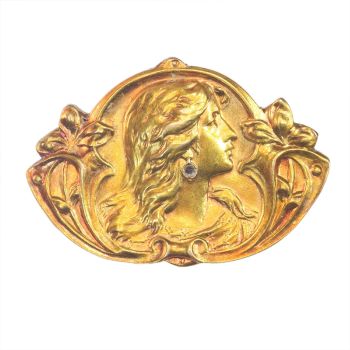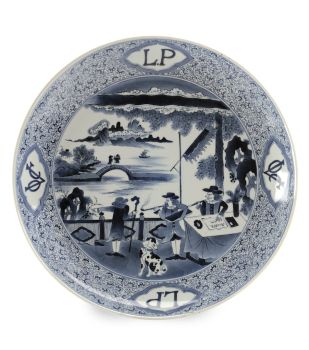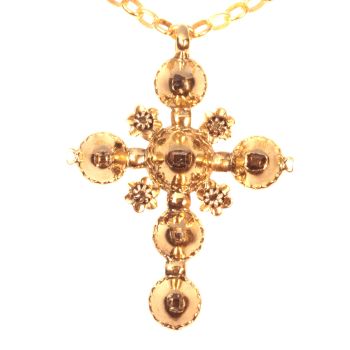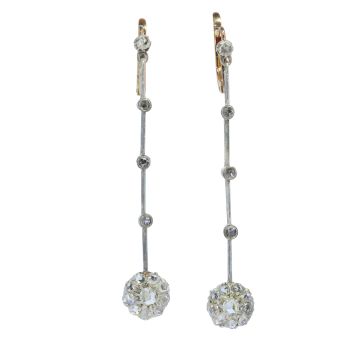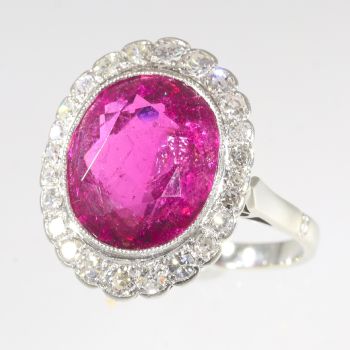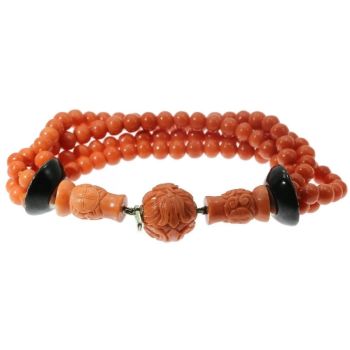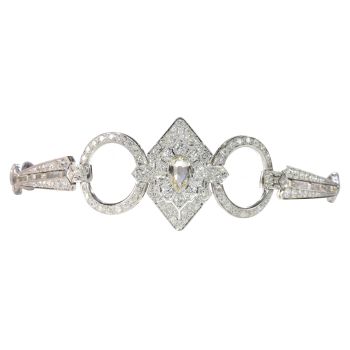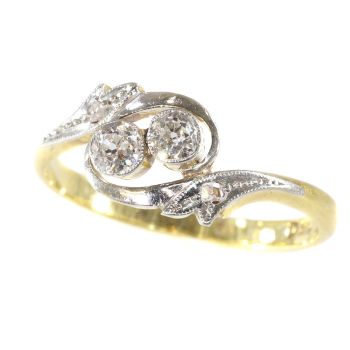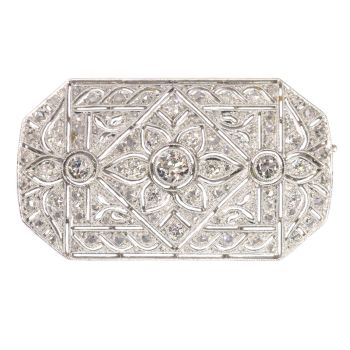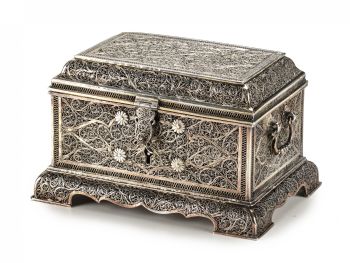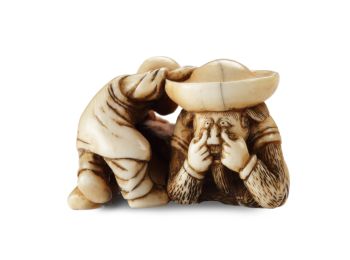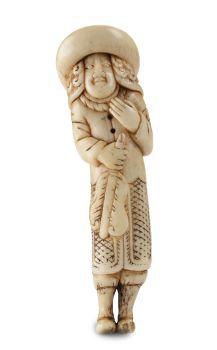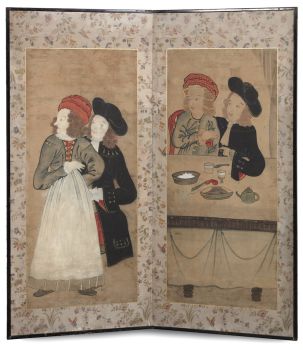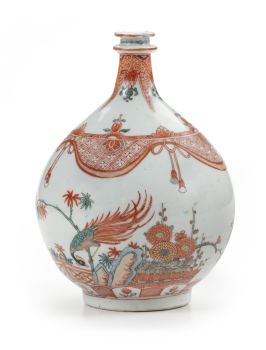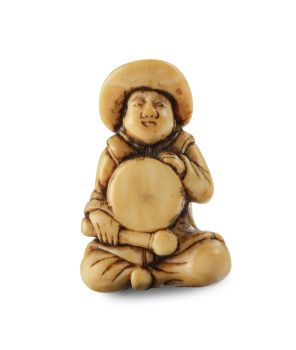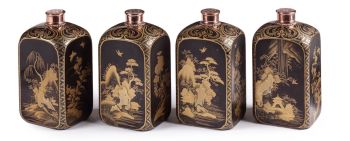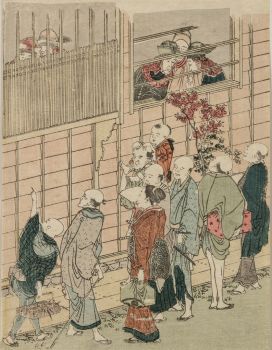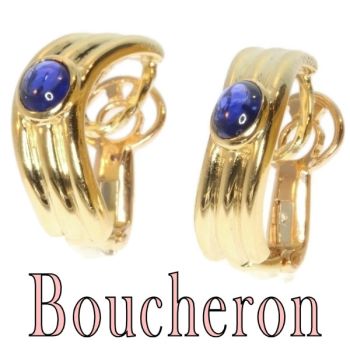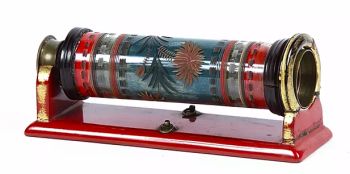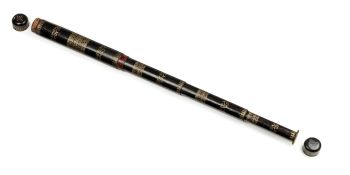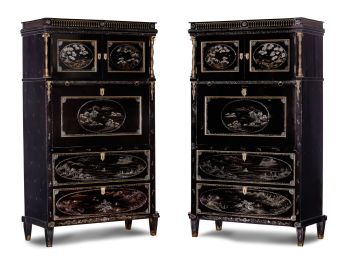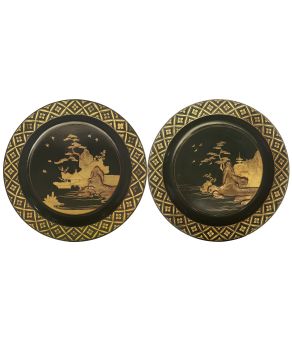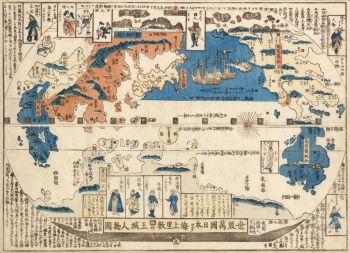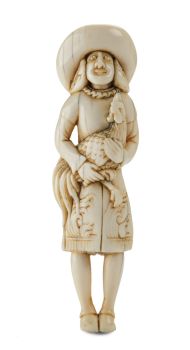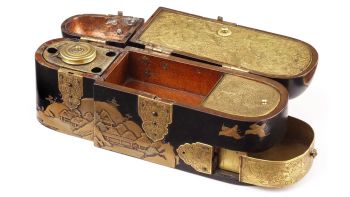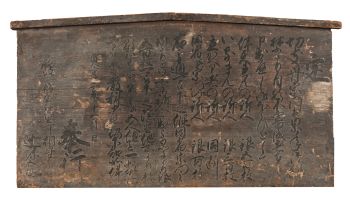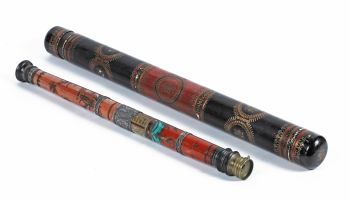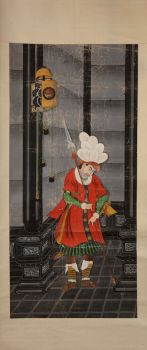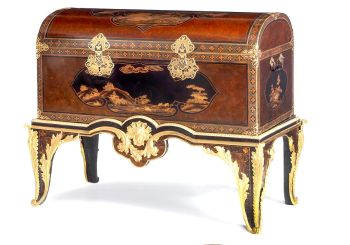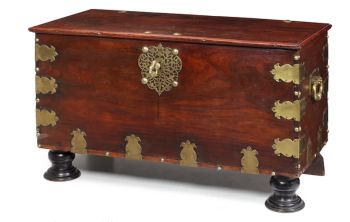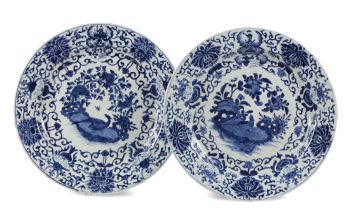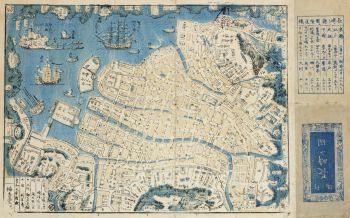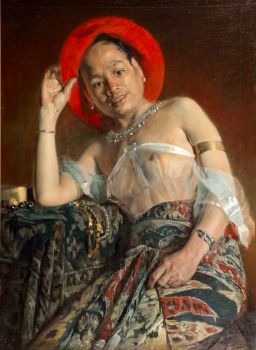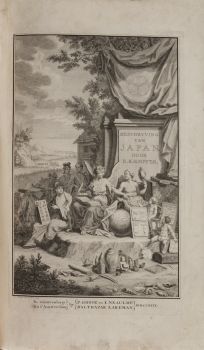UNE PETITE COUPE CRUCIBLE SAWASA 'PEACH-FORM' JAPONAISE early 18th
Artiste Inconnu
Prix sur demande
Zebregs & Röell - Fine Art - Antiques
- Sur l'oeuvre d'artA JAPANESE SMALL SAWASA 'PEACH-FORM' CRUCIBLE CUP
Edo period, early 18th century
With a gilt foot-ring and inside, with a handle to one side of the cup in the form of a leafy branch with prunus flowers, extending along the sides of the cup, ending in two leaves at the opposite end of the cup with a small rose on the rim, with a cartouche to each side with gilt floral sprays in high-relief, as well as a round cartouche with flower decoration.
H. 4.7 x W. 7.5 cm
Note:
For a Sawasa cup with saucer see Uit Verre Streken, November 2018, item 51.
For further reading see the exhibition catalogue, Japanese export art in black and gold, 1650-1800, Rijksmuseum Amsterdam, 1999.
Sawasa ware is a particular group of black lacquered and gilt artifacts, produced initially in Japan/Nagasaki and later perhaps also in China and Indochina. These wares are characterized by their European shapes and Asian/Chinese decorative motives. From the late 17th till the late 18th century, the Dutch VOC, but more so private merchants, used the Dutch trade base, Deshima in Nagasaki, to order precious Sawasa ware for the rich Eurasian elite in the VOC headquarters in Batavia but also to satisfy the taste for exotic rarities in Europe. With the collapse of the VOC, the occupation of the Netherlands by the French armies and of the Dutch East Indies by the English at the end of the 18th century, the production of Sawasa ware came to a sudden end. - Sur l'artiste
Il peut arriver qu'un artiste ou un créateur soit inconnu.
Certaines œuvres ne doivent pas être déterminées par qui elles sont faites ou elles sont faites par (un groupe d') artisans. Les exemples sont des statues de l'Antiquité, des meubles, des miroirs ou des signatures qui ne sont pas claires ou lisibles, mais aussi certaines œuvres ne sont pas signées du tout.
Vous pouvez également trouver la description suivante :
•"Attribué à …." A leur avis probablement une oeuvre de l'artiste, au moins en partie
•« Atelier de …. ou « Atelier de » À leur avis, une œuvre exécutée dans l'atelier ou l'atelier de l'artiste, éventuellement sous sa direction
•« Cercle de… ». A leur avis une oeuvre de la période de l'artiste témoignant de son influence, étroitement associée à l'artiste mais pas forcément son élève
•« Style de … ». ou "Suiveur de ...." Selon eux, une œuvre exécutée dans le style de l'artiste mais pas nécessairement par un élève ; peut être contemporain ou presque contemporain
•« Manière de… ». A leur avis une oeuvre dans le style de l'artiste mais d'une date plus tardive
•"Après …." A leur avis une copie (quelle qu'en soit la date) d'une oeuvre de l'artiste
•« Signé… », « Daté… ». ou « Inscrit » À leur avis, l'œuvre a été signée/datée/inscrite par l'artiste. L'ajout d'un point d'interrogation indique un élément de doute
• "Avec signature ….", "Avec date ….", "Avec inscription …." ou "Porte signature/date/inscription" à leur avis la signature/date/inscription a été ajoutée par quelqu'un d'autre que l'artiste
Êtes-vous intéressé par l'achat de cette oeuvre?
Artwork details
Related artworks
- 1 - 4 / 12
Artiste Inconnu
UN RARE GRAND TÉLESCOPE EN CUIR LAQUÉ JAPONAIS1750 - 1800
Prix sur demandeZebregs & Röell - Fine Art - Antiques
Artiste Inconnu
The Stamford Raffles Secretaires.1800 - 1813
Prix sur demandeZebregs & Röell - Fine Art - Antiques
Artiste Inconnu
UN FILET D'IVOIRE D'UN DUTCHMAN TENANT UN COCKEREL18th century
Prix sur demandeZebregs & Röell - Fine Art - Antiques
Artiste Inconnu
A rare Japanese export lacquer medical instrument box1650 - 1700
Prix sur demandeZebregs & Röell - Fine Art - Antiques
1 - 4 / 21Shiba Kokan
Peinture d'un hollandais fantastiqueearly 19th
Prix sur demandeZebregs & Röell - Fine Art - Antiques
Engelbert Kaempfer
LIVRE ENGELBERT KAEMPFER1651 - 1716
Prix sur demandeZebregs & Röell - Fine Art - Antiques
1 - 4 / 12

